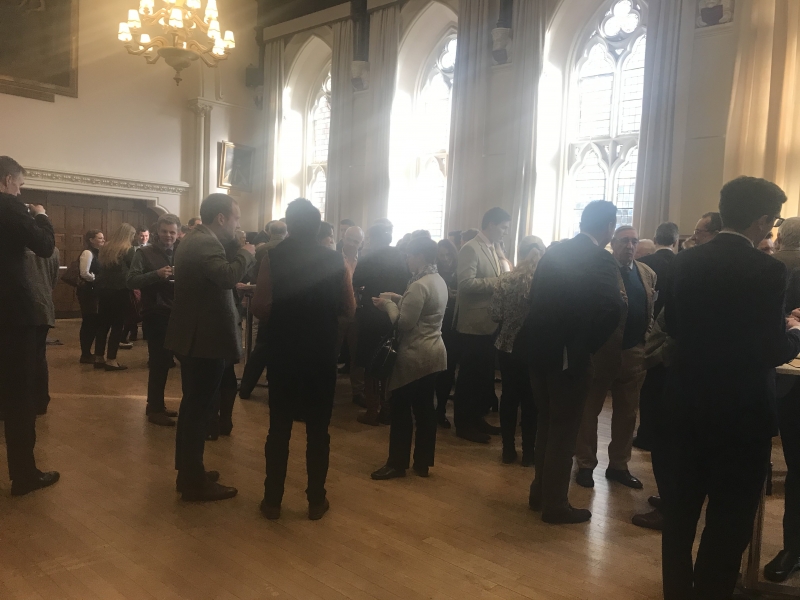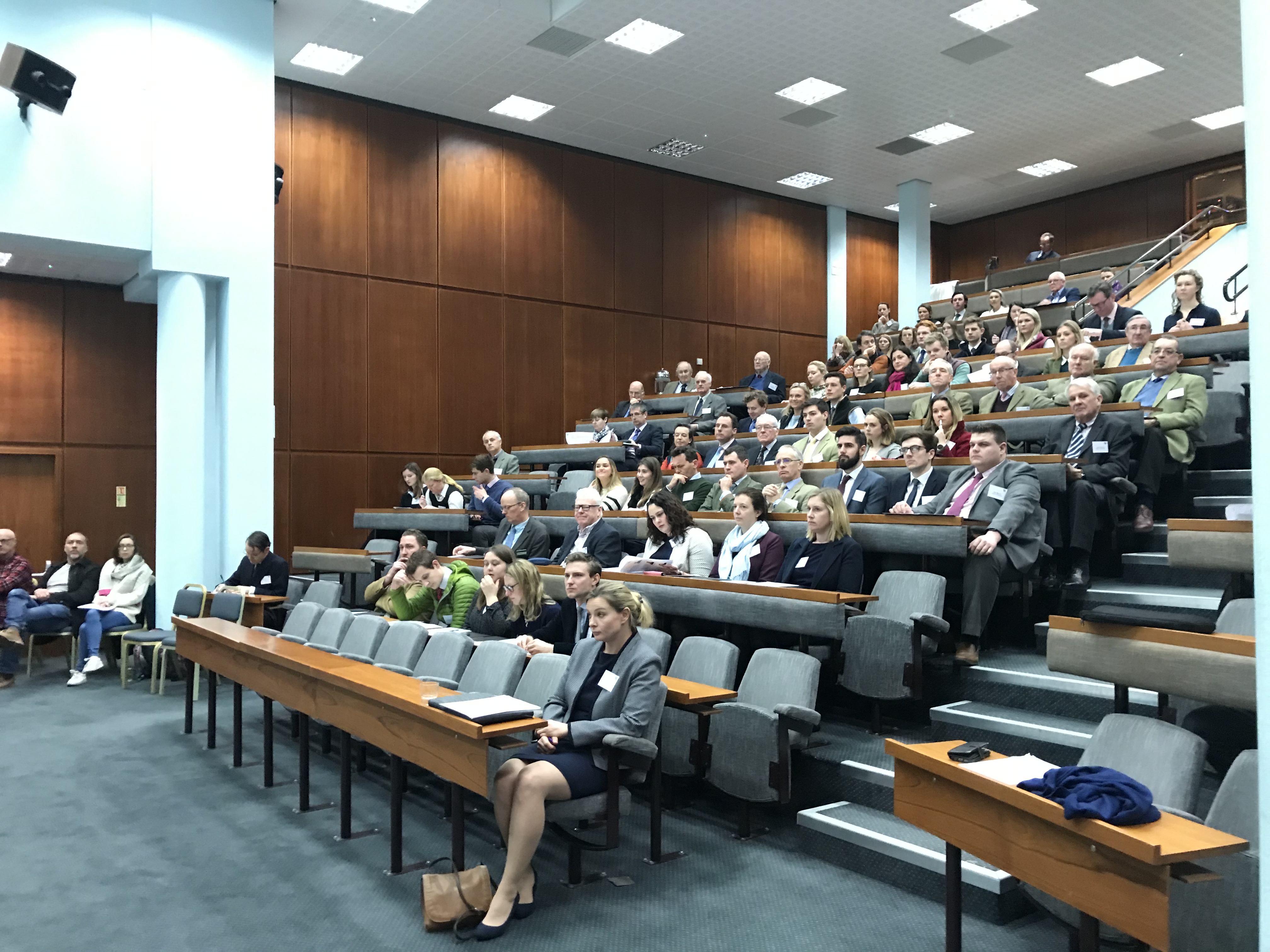Agrilaw 2020
17 February 2020

Our annual Agrilaw conference took place on the 5 February, looking at issues that could be faced by the modern farming family.
We focussed on a range of issues including:
- how divorce can affect a farming family
- why partnership agreements are important
- what the courts can go after in divorce proceedings
- how to resolve the problems that arise because of divorce e.g. what assets to sell and the tax implications.
Approximately 100 individuals from the agriculture and rural estates sector made their way to Winchester Guildhall to hear from our speakers Peter Bourke, Jessica Broxup, Jacqueline Fitzgerald, Tim Olliff-Lee and Anna Wagner. To bring the topic to life we were also joined by a few actors!
Peter Bourke kicked off the conference, talking about how you should recognise and plan for risk in your business, before introducing the scenario that we addressed throughout the conference. The actors played characters all reminiscent of a farming family, explaining why the shareholders in the farming business could benefit from a Partnership Agreement.
This role play led on to our next section, led by Jessica Broxup, which considered what a Partnership Agreement is Jessica explained “Partnership is the relation which subsists between persons carrying on a business in common with a view of profit.” She went on to look at who could benefit from Partnership Agreements and the case law surrounding the topic.
The actors then demonstrated what can happen in a farming family when there are changes in family circumstances and how it can affect the business.

Jacqueline Fitzgerald, Partner in Wilsons’ family law team went on to explain how divorce can have an impact on a farming business. She looked at a number of cases to explain what the court would take into account when making its judgement, for example, financial resources, the standard of living, duration of marriage and conduct.
Before everyone broke up for coffee, Peter had a brief chat about what other structures could be put into place to help farming families.
For the final session, we heard from Tim Olliff-Lee and Anna Wagner who looked at steps that can be taken to sort the problem, including property and tax considerations. Tim started off by looking at how to deal with the property issues that arise because of divorce, giving three options that should be considered in order to pay for the divorce. These included: overdraft, secured lending, sales and in some cases a mixture of all three may be needed, he then went on to explain the advantages and disadvantages of each method and how they applied to our case scenario.
Anna Wagner was our final speaker of the day and explained the tax implications when deciding to either dispose or restructure the business including Capital Gains Tax, Stamp Duty Land Tax, or Inheritance Tax. She also looked at case law surrounding the topic including the case of Exors of Thomas Gill (deceased) v HMRC [2019] TC 07425 (FTT) which provides helpful guidance to those claiming Agricultural Property Relief and Business Property Relief. This case highlighted that in agricultural cases HMRC will look at each part of the farming business in isolation rather than looking at the property as a whole.
We received some great feedback from the day:
“Another good seminar with a mix of legal, practical and opinion. The drama works well.”
“Really enjoyed the morning, thank you for making it so interesting.”
“Liked the theatre style of actors - gave it an additional flavouring. As ever an interesting acting episode.”
“Thank you for an excellent morning – it was very good and I very much enjoyed every part of it.”
If you would like any further information about any of the topics covered in our Agrilaw conference, or would like advice on guidance on any aspect of farms or estates law, please contact our team using the form below.



